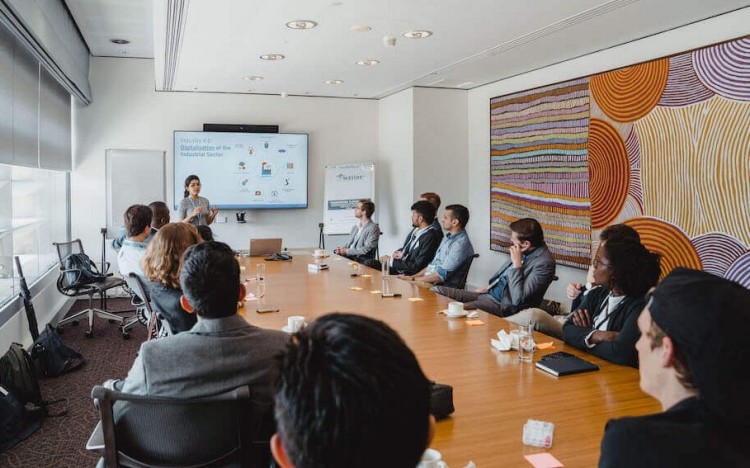Amazon’s artificial intelligence software Alexa has recently included a new feature on its ‘Echo’ hardware, where the program will rate your clothing choice and make recommendations based on industry trends.
Alexa, and its other fair-voiced counterparts in the industry, are increasingly encroaching into our everyday lives. But for businesses marketing their products, this can be a major advantage.
Disruptive AI technology, like chatbots, ad targeting, and speech recognition are all part of a growing marketing technology industry—martech.
For marketing professionals, understanding disruptive technology and digital innovations is crucial to staying ahead.
“We’re using more technology now and we’ve become more effective at engaging customers,” explains Dr Michele Roberts (pictured), marketing academic and academic director at Australian Graduate School of Management (AGSM) at the University of New South Wales Business School in Sydney.
“Everything has changed yet nothing has changed”
As innovation in martech is increasing, so is the size of the market around it. Companies around the world spent $99.9 billion on digital marketing in 2018, representing around a quarter of total marketing spend.
A significant part of this, as with a lot of technology, deals with personal user data, which is making digital marketing much more personal and much more directed. With AI like Alexa, this creates a playful and personal relationship between product and customer—but big data goes much further than this for the digital marketing industry.
“We understand a lot more now about what the consumers and customer insights are, and [as a result] how to create products that they actually want,” Michele reveals.
There are ethical issues attached to having access to personal data—highlighted by the Facebook-Cambridge Analytica controversy, where private information was deployed for political purposes. Michele says marketing professionals need to put integrity and ethics at the center of their practice. “Once trust has gone, you can never get it back,” she says.
Understanding both the established practices of marketing and navigating new digital realms is central to a new intensive Digital Marketing in Asia-Pacific course, launching at AGSM @ UNSW Business School in June as part of the Global Network for Advanced Management (GNAM) partnership, Michele explains.
The GNAM network spans 30 business schools in 28 countries and focuses on preparing leaders for accelerating globalization.
The Digital Marketing in Asia-Pacific course covers central digital marketing themes such as strategy, marketing intelligence, and customer analytics, and will be open to incoming students from GNAM schools around the world at the Australian Graduate School of Management.
Part of the course will be a team simulation, in which groups run virtual companies to compete against each other for market share. The winner, ultimately, will be judged on who can build the most customer-centric organization.
Having worked closely together in teams running companies in the simulation, the students finish the week with a live digital marketing challenge for a real client. Marketing and customer behavior differs greatly from culture to culture, and this shared method of learning offers students the chance to understand different approaches and perspectives—on digital disruption and the ethical dilemmas associated with that too—from around the world.
Students on the course, meanwhile, will meet industry experts who are part of the digital marketing network at AGSM, including Stephen Scheeler, AGSM executive-in-residence and former CEO of Facebook ANZ.
“Everything has changed in marketing—absolutely everything—but also absolutely nothing has changed,” Michele advises.
“Customers still have the same needs and competitors still respond in similar ways, but how we implement our marketing strategy and the four P’s—product, place, price, and promotion—has radically changed in the digital age.”
Global opportunities
To give students a kickstart in digital marketing, the first GNAM marketing course will take place from the 11th to 15th June for students in the Global Network with a subsequent course from the 14th to the 18th October open to MBA students at all GNAM partner schools.
UNSW is the only Australian university in the GNAM network. While AGSM MBA students can’t participate in GNAM courses held at AGSM, they have the opportunity to pursue study at any other partner school in the network. On GNAM’s Global Network Weeks, students from across the network attend classes, tour local businesses and meet with industry experts.
Participants include students from leading business schools in the US, including Yale University and UC Berkeley, and from countries around the world, including China, Japan, Mexico and Ireland.
And, this year, over 40 AGSM MBA students will be venturing out to study MBA courses at other schools in the network, including Digital Transformation at IE and Behavioral Science at Yale.
“It’s a wonderful alliance that allows students to travel throughout partner universities, learning more about each other and exchanging knowledge,” Michele beams.








